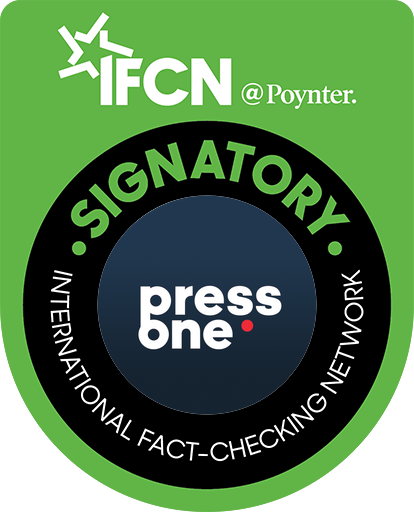An X user made the false claim that journalists do not have a professional code of ethics.

CLAIM: Journalists do not have a code of ethics.
RATING: FALSE
An X user made the false claim that journalists do not have a professional code of ethics.
In a post, X user Davao Senyorito falsely claimed that journalists “don’t have a code of ethics so they can do what they want.”
The Journalist’s Code of Ethics was adopted by the Philippine Press Institute, the National Union of Journalists in the Philippines, and the National Press Club in 1988. This code is widely accepted by journalists and news organizations in the country, and is taught in journalism schools.
Aside from this, broadcast journalists and their news organizations follow the Kapisanan ng mga Broadkaster ng Pilipinas (KPB) Broadcast Code of the Philippines. The first Broadcast Code of the Philippines was issued in 1975, a year after the Broadcast Media Council was created under the Martial Law regime of President Ferdinand Marcos Sr.
A new code was issued in 2007 and amended in 2011. The new code is “a set of professional and ethical standards for broadcasting that guides broadcasters in exercising sound judgment in the performance of their public duty.”
It has standards on commentaries and analysis, the airing of propaganda, broadcast decorum, and others. KBP members are accountable to the organization’s Standards Authority.
The Center for Media Freedom and Responsibility published a comparison of the codes of ethics of the newsrooms of ABS-CBN and GMA Network and the Broadcast Code, proof of the presence of professional standards in journalism. Rommel F. Lopez
PressOne.PH is a verified signatory of the Code of Principles of the International Fact -Checking Network (IFCN) at Poynter. The code of principles of the International Fact-Checking Network is a series of commitments organizations abide by to promote excellence in fact-checking. We believe nonpartisan and transparent fact-checking can be a powerful instrument of accountability journalism..
PressOne.PH believes that fact-checking is essential to combating misinformation and disinformation, and in informing and educating citizens and voters. Read more of PressOne.PH’s Fact-Checking Policy by clicking here.
The public is welcome to send feedback or requests for fact-checks at factcheck@pressone.ph.
If you believe PressOne.PH is violating the Code of Principles of the International Fact-Checking Network (IFCN), you may submit a complaint directly to the IFCN website: https://ifcncodeofprinciples.poynter.org/complaints-policy

FACT-CHECK: Journalists have a code of ethics
An X user made the false claim that journalists do not have a professional code of ethics.

FACT-CHECK: Tycoon Lance Gokongwei did not say he could turn thousands into millions ‘instantly’
CLAIM: Lance Gokongwei told Anthony Taberna he could turn P15,000 to a million by investing in a cryptocurrency. RATING: FALSE A series of Facebook ads claimed that businessman Lance Gokongwei had revealed in an interview a way to turn an individual’s P15,000 to...

FACT-CHECK: Landbank says circulating cash assistance announcement is fake
A TikTok account has falsely claimed that students from elementary up to college would receive cash assistance worth P4,000 from state-run Land Bank of the Philippines.


0 Comments